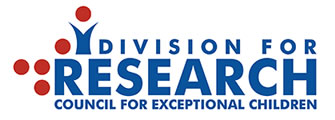
When people embark on the parenting journey, they start with lots of hopes and dreams. They start to imagine their life with a child (or several children) in it. They dream about key milestones – their child’s first steps, the first day of school, high school graduation, mother-son/father-daughter wedding dance and so on. Becoming a parent is a life-altering experience that changes how people view themselves, the roles they play in life, and the aspirations they have for the future.
Children are rapidly changing as they go through different developmental stages. This means that parents have to continuously adjust and adapt as their children grow, and some transitions are more challenging than others. One transition that sometimes takes parents by surprise is the leap from parenting a child to parenting an adolescent. Parents go from being the primary figures in a child’s life (e.g., meeting basic needs, providing emotional support, problem-solving) to being part of a larger social network that meets an adolescent’s needs (e.g., friends, teachers, coaches, mentors). It takes time and patience to find a new rhythm that feels right in the parent-child relationship. During this time, parents often discover that their child is starting to challenge the original vision about their life formulated by parents when their child was born. Although parents and children often have some common values, adolescents may question some of their parents’ ideas, principles, and guidance as they develop their own identity and embrace their own set of individual beliefs. This experience involves a sense of loss for parents, like going through the stages of grief (Kubler-Ross & Kessler, 2014). Sometimes people go through these stages in order, or they may jump around the stages. Parents may experience any of the following:
- Denial– “My child is still so young and needs lots of guidance on what to do and what not to do. I can’t let my guard down or sit by and watch them fail or choose the wrong path.”
- Anger– “I am doing my best to be a good parent and have sacrificed so much for my child’s wellbeing and future and there is simply no gratitude for everything I’ve done. My efforts are met with push back, disrespect, or being told that I don’t know what it’s like to be an adolescent. It’s so frustrating!”
- Bargaining– “I’ll agree to pay for my child’s gas until the end of the summer after their high school graduation, as long as they join the Coast Guard. If they are not going to join a military branch like we’ve discussed in the past, given our family’s history of service, then they will need to pay for room and board to live at home after high school.”
- Depression– “I can see my child making mistakes and going on a path that may not set them up for success. It feels like no matter how much I try to get through to them, they seem to trust their friends more and I am left wondering what they are thinking and feeling. Sometimes, it feels like I am failing at parenting.”
- Acceptance– “My child has grown into their own person, with their own values and goals. Some of their beliefs are aligned with mine, but there are also some differences. My child’s vision for their future may not match what I envisioned for them, but I am ok with them carving their own path. I can see they will make some mistakes. I will be available to help problem-solve if they ask. I trust that, in the back of their mind, my child can still hear what I’ve been trying to teach them all of these years. I am still a parent and need to set some boundaries/expectations, but I am learning how to adjust my parenting to my child’s developmental level.”
If you are a parent of an adolescent and find yourself wondering how to navigate this new stage in your and your child’s life, here are some hints and tips for what you can do:
- Be gentle with yourself – The transition to parenting an adolescent can be challenging.
- Find support from other parents of adolescents – You are not alone in this journey. Discuss what parenting approaches other parents have found to be successful.
- When your adolescent makes a mistake, take comfort in the fact that they are still in your home – Your guidance still matters and your influence is still strong. This is an ideal time to help your adolescent navigate challenges, so they can be prepared to handle difficult situations after they leave home to live independently.
- Focus on active listening – Simple things like making the time for conversations, nodding, reflecting back or acknowledging what your child is feeling can go a long way. Adolescents value being heard more than being provided with solutions to problems.
- “You are really upset that your friend did not invite you to go to the mall with them.” (active listening and reflection)
- “Have you tried texting your friend? Did you ask them if you can go to the mall together next weekend?” (offering solutions)
- Parental monitoring and involvement – Protects against negative outcomes in adolescents.
- Know with whom your child spends time in person and online.
- Know and try to share in your child’s interests.
- Have conversations about healthy relationships and healthy social media use.
- Know your child’s whereabouts.
- Keep open lines of communication – some teens prefer to text with parents about certain topics instead of talking in person.
- Develop a safety plan with your child that involves them contacting you if they’re in trouble or hurt.
Ray, A.R. (2023, April 10). Parenting Adolescents – Good Grief! Retrieved from https://infoaboutkids.org/blog/parenting-adolescents-good-grief
















